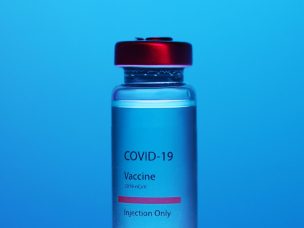Search
2665 Results for "Cancer"
Age, Cancer Type Affect COVID-19 Vaccine Uptake in Cancer Patients
Higher rates of vaccination seen in older patients; lower rates seen for metastatic solid tumors, with comorbidities For patients with cancer, age, cancer type, and comorbidity are associated with differential COVID-19 vaccine uptake rates, according to a study published online March 15 in Cancer. Dax Kurbegov, M.D., from the Sarah Cannon Research Institute in Nashville, Tennessee,...
Estimating Breast Cancer Overdiagnosis
Breast cancer diagnosis by mammography is an important step in detection, but overdiagnosis can also be an issue. Researchers find that overdiagnosis is fairly common. Breast cancer mammography screenings can lead to screen-detected breast cancer that, if not detected, would not have caused any signs or symptoms during the patient’s lifetime. There is no consensus...
Could Racism Be the Cause of Cancer?
By Robin Baumeister Race accounts for higher mortality rates for all cancer sites, studies find. While this should come as no surprise, its gravity is no less present; regardless of gender, black cancer patients face higher mortality than their white peers. Among black men, cancer incidence is also higher; black men have 25% higher incidence...
Identifying Prostate Cancer Disparities
As researchers continue digging deeper into prostate cancer differences in black men, physicians are left with finding new ways to address disparities in their own communities. Active surveillance remains an option for identifying prostate cancer in black men, although low-grade prostate cancer is more aggressive in this population. Healthcare providers must also take into account...
Obesity and Prostate Cancer Detection
Although patients with obesity have demonstrated lower incidences of prostate cancer, cancer progression and mortality are much higher in these cases. This study sought to understand the role of obesity in cases of prostate cancer, including why patients with obesity are diagnosed less often but with increased mortality rates. The researchers used three nationally representative...
Current Treatment of Cervical Cancer
Despite increasing early detection of cervical cancer, in 2022, it is estimated that 14,100 women will be diagnosed with invasive cervical cancer in the United States. Of these women, an estimated 4,280 of them will die from the disease [1]. Over the years, the death rate due to cervical cancer has decreased significantly, and the...
Personalized Medicine for the Treatment of Cancer
This article elucidates the metabolic pathways of rapamycin and its derivatives, intending to propose a strategy for implementing personalized medicine. Rapamycin (sirolimus) and its derivatives are immunosuppressants and chemotherapeutic agents used in cancer treatment. As the paradigm shifts towards personalized medicine, it is essential to identify the factors impacting the effectiveness of these drugs. A...
Understanding NUDT5: A Step Forward in Fighting Triple-Negative Breast Cancer
New research shines a light on fighting a difficult type of breast cancer, known as triple-negative breast cancer, by focusing on an enzyme that protects these cancer cells. This discovery opens up possibilities for treatments that are not only effective but that may also be gentler on the body. Research identifies the enzyme NUDT5 as...
Phototherapy for Skin Diseases, Cancer, and Allergies
Phototherapy is a promising treatment option for various skin conditions, but further research is needed to explore its full potential and safety. Non-invasive phototherapy using LED technology is becoming popular for medical and aesthetic dermatological conditions. Studies have shown that these treatments can promote wound healing and reduce inflammation. Recent studies using blue light have...
Carrot Intake and Risk of Developing Cancer
Consistent consumption of raw carrots is associated with protection against lung cancer, leukemia, pancreatic cancer, and large bowel cancer. Various cohort studies have demonstrated the role of consistent consumption of fruits and vegetables in reducing the risk of various types of cancer. Carrots are a major source of falcarinols, which have been shown to inhibit...
Related Stories
More Medical News


















